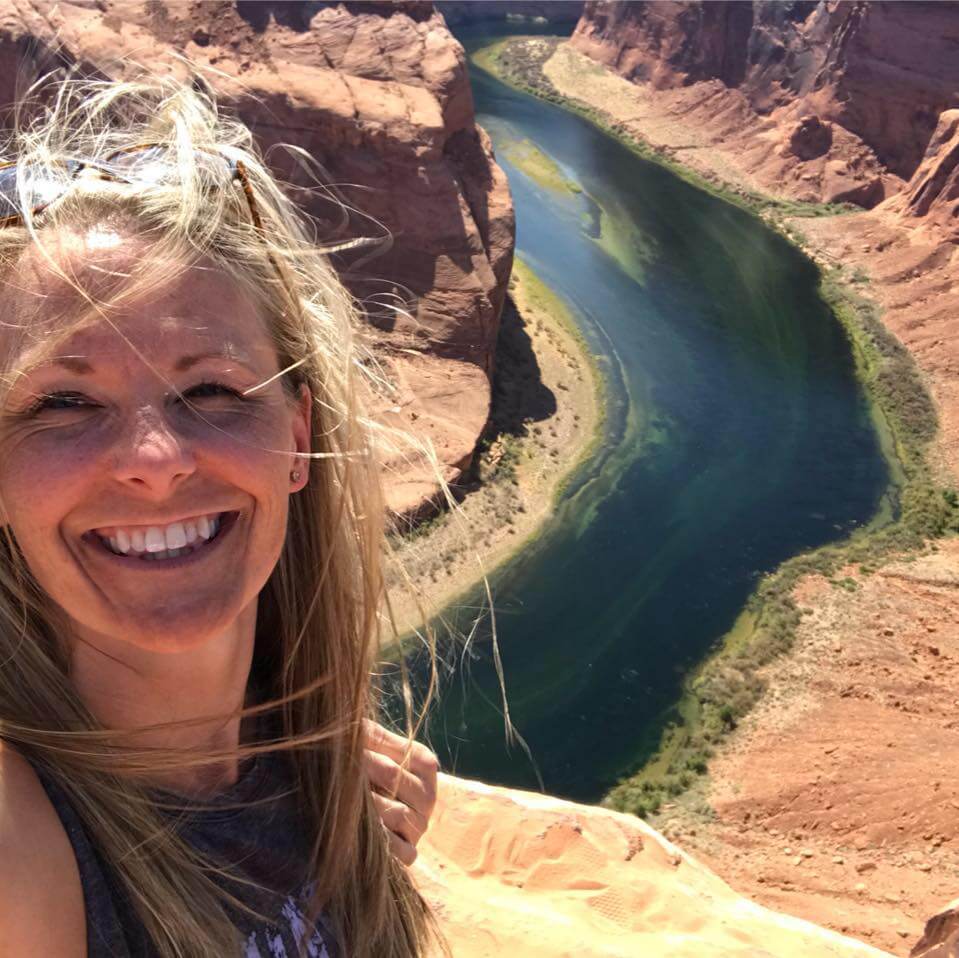Interview with an ER BSN/RN

Sarah Briggs
Stats: Busiest ER in the state, 5th busiest in the nation
Career: Been in the ER for three years, which translates to 3-5 years in a traditional ER with the amount of stuff you see.
How did you get into nursing as a career?
My career started as a vet tech, but as a vet tech, you are limited in your education options and the only “step up” is as a veterinarian which was much more time consuming and less cost effective than becoming a nurse.
My original goal was to be an ultrasonagrapher, but I didn’t get in to the program. From there, I was encouraged by others to go to nursing school, where I was on wait list for two years. I initially did a two-year RN associate’s degree. I passed my boards in a month, and got hired just three months later at the hospital I am still at today on the medical telemetry team, where patients are on cardiac monitoring, the level of care just below ICU.
How did you choose your nursing program?
I looked at the NCLEX pass rate and it was so good. For my BSN, I chose a school that offered the program at an accelerated pace, 100% online, so I could work and go to school. I have to say, it did make my first year as a nurse extra stressful, but I still don’t think you should take a break – just keep forging ahead with school. It’s not as health-driven of a program, more theory-based, so the curriculum is different.
What has nursing allowed you to do that you may not otherwise have done?
Received more education than I thought I was capable of = joined a professional career. Nursing is very much a lifestyle and not only when you go to work all day every day. You are of service to the public every day.
I also get to travel to Haiti this year on a medical mission, and I am super excited about making an impact on global health.
What’s next for you with nursing?
I plan on continuing to grow and I am currently in a FNP program, where I can choose a specialty or become an Acute Care FNP. I’m still figuring out what I want to do, but I love that I have options, from running my own practice and focusing on natural remedies or higher levels of care within the hospital setting.
Name three top tips you would offer the nursing professional just entering the field:
1. Give yourself a break and a year to adjust to being a nurse, takes time to settle in, proper expectations
2. Get to know your techs and support staff, they are your support staff and they will teach you and save you more than you ever thought imaginable
3. A warm blanket, a smile and a fresh pillow completely changes a patient’s attitude and is the nicest thing you can do
More advice
Nursing is about more than just passing a test, some people fly through school with flying colors, others have to really study, struggle at school, and work harder at the academics than others. What you do out there is completely different than what you experience in school. Do the tutoring, do the notecards, but don’t let the school portion stand in the way of the goal.
What are the challenges or obstacles that a new nurse may face?
You study two years for a test, the boards are nerve wracking. You have to trust your educational system and think they have prepared you for it. Take your time and don’t rush into the first job you get.
Don’t take a break – get into the BSN right away. It is writing papers, very academic. Theory but that’s it. Totally different than the RN program. Did an 18-month program, 100% online and was able to manage work and school at the same time.
As a new nurse, you have so much fear. The patient’s life is in your hands. You have to keep your cool and follow your training.
What is the best advice you have ever received?
When you are new at a hospital, you are with preceptor to orient you to the unit and you are slowly integrated to the full caseload. You need to learn the charting and everything else. I think at first you just hope you have a good preceptor, and mine was great.
The best advice was to take care of myself – personal effects, eating and sleeping are all super important. You have to really manage your subconscious and take care of yourself mentally, physically, emotionally and spiritually.
Also, I was told – Don’t take anything personally. The patients are tired, not sleeping, and in the worst crisis of their life. And that can be rough, it’s not you. You have an opportunity to make a difference and use humor to get through.
What about nurse burnout?
When I was a brand-new nurse, I would help no matter what, but sometimes have to take time off and take care of myself and remind myself to not be always “on.”
Why a BSN?
If you want to work in a hospital you need a BSN. If a hospital has magnet status, then they are required to have that level of education for the type of care that is provided.
A BSN will widen your scope of knowledge to a more global and national view. Look at public health, telehealth, and bigger wider scope of knowledge. With what you are ethically and legally responsible for, a minimum of a BSN makes sense.
Anything else?
Becoming a nurse was the best decision I have ever made. It has completely changed my life. It is worth every ounce of stress and pain and debt and money combined.
